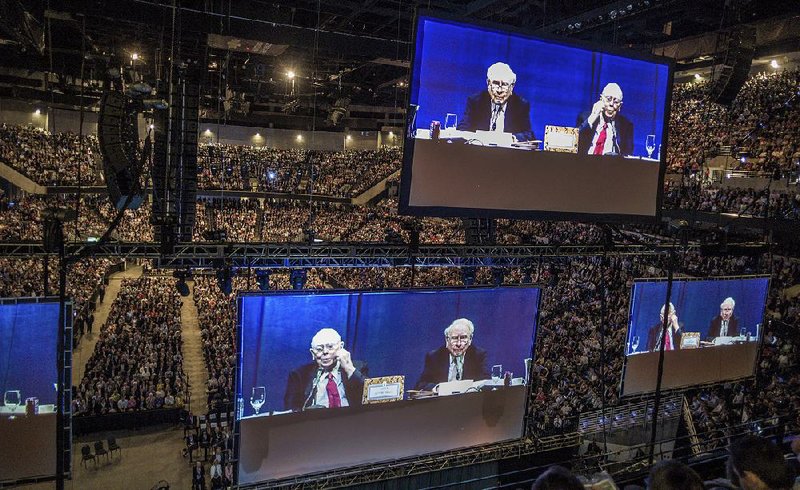Charles Munger, the vice chairman at Warren Buffett's Berkshire Hathaway Inc., said the leaders of his political party risk going too far in their efforts to reduce oversight of banks.
"My fellow Republicans -- the ones taking away all this regulation of major finance -- I think that's bonkers," Munger, 93, said Monday on CNBC.
Munger is known for his outspokenness, and some of his views contrast with those of Buffett, a Democrat. For instance, Munger supports a plan by President Donald Trump's administration to encourage companies to bring back funds that have been kept overseas where they avoid U.S. taxes. However, the Berkshire executives agreed in the televised joint interview Monday that the U.S. would benefit from a government system that offers health care for all.
Buffett and Munger have been saying for years that the financial system benefits when government oversight prevents excesses. The issue took on added urgency after the financial crisis prompted Congress to pass the Dodd-Frank Act of 2010, tightening regulation. Trump, a Republican, has called the legislation a "disaster," saying he believes it has made it extremely difficult for businesses to get loans.
Lenders that benefit from government backing of customer deposits should be obligated to "behave in a pretty careful, standardized way," Munger said. He said he's OK if dealmakers have to look beyond the major banks for financing on potentially risky transactions.
"It is true that some of the new regulation has taken banks out of financing leveraged buyouts directly, and that we have shadow banking instead to do that," Munger said. "I think that's fine. What's wrong with the shadow banking?"
Trump has also said he's actively considering a breakup of giant Wall Street banks to separate consumer and investment banking. That possibility wasn't a focus of the CNBC interview.
Berkshire is among the largest investors in companies including Wells Fargo & Co., Bank of America Corp. and Goldman Sachs Group Inc. Still, Munger has long faulted Wall Street for taking on too much risk.
"We need to remove from the investment banking and the commercial banking industries a lot of the practices and prerogatives that they have so lovingly possessed," Munger said in 2009. "If they are too big to fail, they are too big to be allowed to be as gamey and venal as they've been -- and as stupid as they've been."
The House Financial Services Committee last week passed and sent to the full House a Republican-sponsored bill that would repeal about 40 provisions in Dodd-Frank. The law, which increased regulations on banks with the intent of preventing another financial crisis, has been blamed in part for a sharp drop in the number of community banks across the country. These banks' primary business customers are small companies. Critics say the law has also made it harder for businesses and consumers to get loans.
Information for this article was contributed by Joyce M. Rosenberg of The Associated Press.
Business on 05/09/2017
